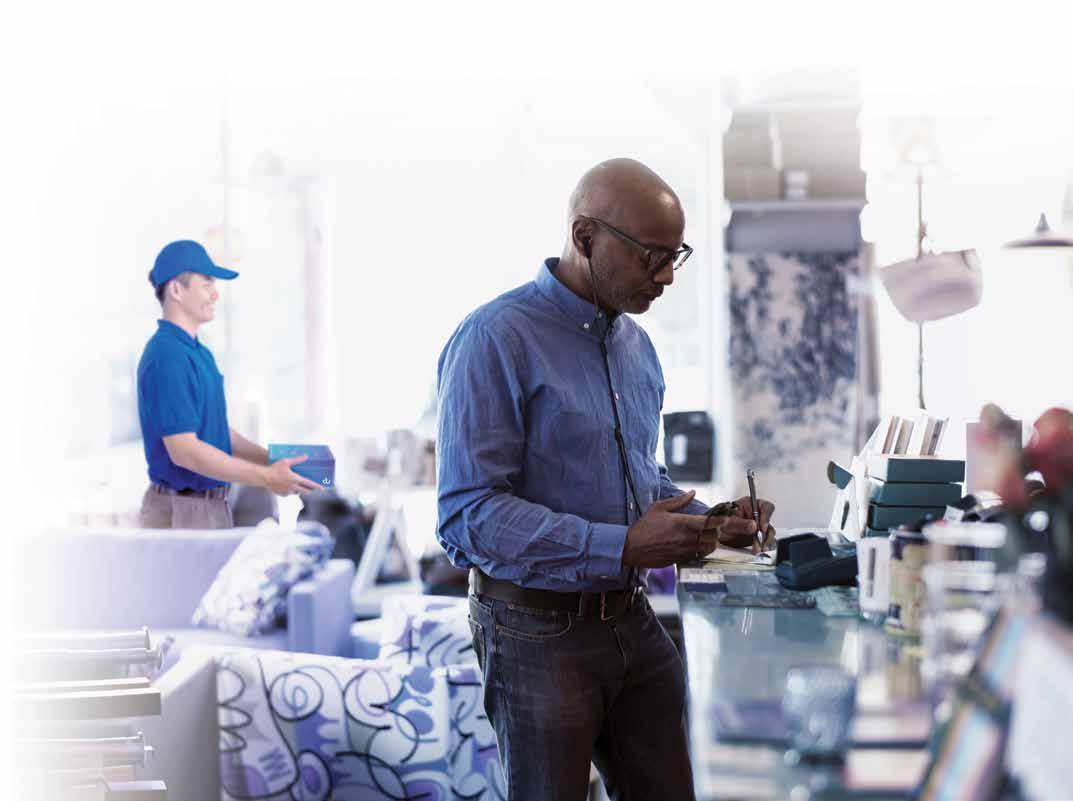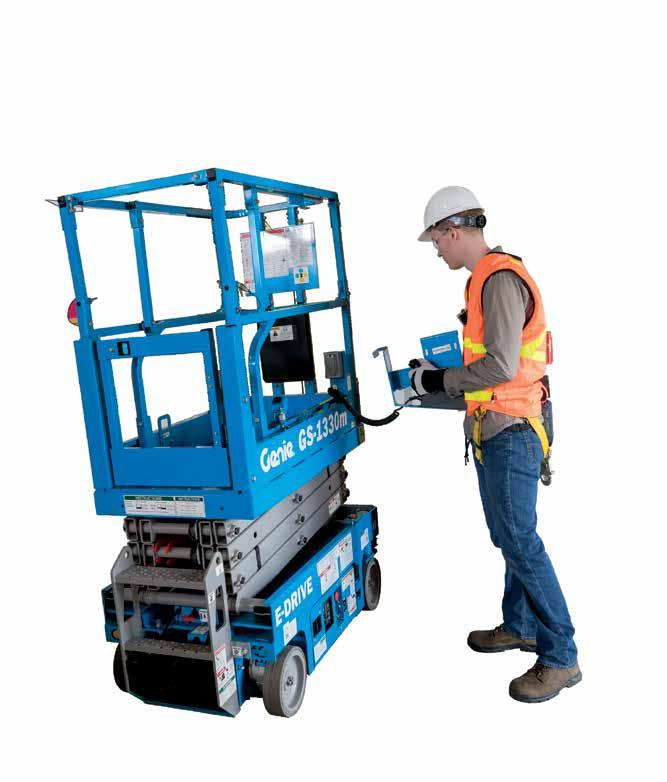Resilient Logistics Sector
Dubai Chamber on the rise of the E-Commerce sector

A look into a new era of shipping


Resilient Logistics Sector
Dubai Chamber on the rise of the E-Commerce sector

A look into a new era of shipping

Saud Abu Al-Shawareb tells LNME how Dubai Industrial City has emerged as a strategic hub for logistics and manufacturing industries

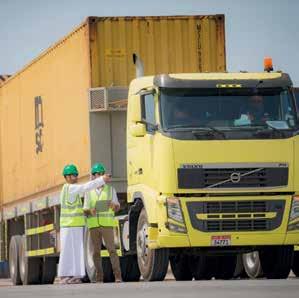





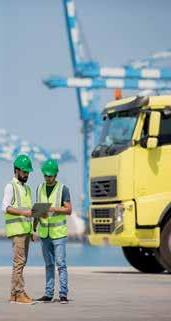











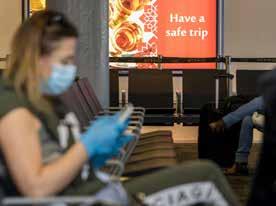

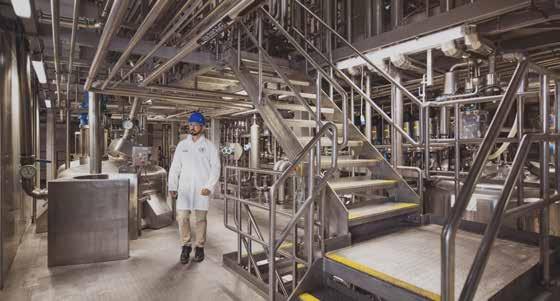




business continuity is our top priority. Our initiatives and remote solutions have got you covered in all situations.
du.ae/wegotyourb


Over the past few months, the aviation industry has taken a massive hit due to COVID-19. Airlines have had to make tough decisions to weather the storm with travel suspended to a majority of countries around the world. IATA revealed its financial outlook for the global air transport industry showing that airlines are expected to lose $84.3 billion in 2020 for a net profit margin of -20.1%. Revenues will fall 50% to $419 billion from $838 billion in 2019. In 2021, losses are expected to be cut to $15.8 billion as revenues rise to $598 billion.
Even though the data may look dire, one bright spot has been the air cargo sector. Compared to 2019, overall freight tonnes


carried are expected to drop by 10.3 million tonnes to 51 million tonnes. However, a severe shortage in cargo capacity due to the unavailability of belly cargo on (grounded) passenger aircraft is expected to push rates up by some 30% for the year. Cargo revenues will reach a near-record $110.8 billion in 2020 (up from $102.4 billion in 2019). As a portion of industry revenues, cargo will contribute approximately 26%--up from 12% in 2019
Kasun Illankoon Editor, Logistics News Middle East
Business




Global Aerospace Logistics (GAL), a leading regional provider of integrated aircraft sustainment solutions for military and civilian customers, today announced that it has signed an agreement with Etihad Airways, the national airline of the United Arab Emirates, to support local jobs and training – enabling Etihad staff to be seconded to GAL.
Initially for a six-month period, the partnership will enable GAL to leverage the expertise and experience of Etihad staff from a range of functions including maintenance, operations, supply chain and commercial departments to enhance several of its major aviation projects. The deal will also extend Etihad’s specialised career training and development.
The bipartisan agreement was initiated under the patronage of His Excellency
Sheikh Mohammed Bin Hamad Bin Tahnoon Al Nahyan, Vice Chairman of GAL and Chairman of Abu Dhabi Airports Company (ADAC), in partnership with Tony Douglas, Chief Executive Officer of Etihad Airways.
Commenting on the new partnership, His Excellency Sheikh Mohammed Bin Hamad Bin Tahnoon Al

Nahyan said: “In the current environment, with the COVID-19 pandemic having such an impact on us all, it is only right that organisations within Abu Dhabi come together to support each other through innovative new working partnerships, ensuring we make the best use of the resources and the many talents available to us across our great nation.”
He added: “The aviation sector is one of the cornerstones upon which our socio-economic future will be built, and it is this type of cooperation that will ensure we come out of the current
crisis stronger and more resilient than before.”
Tony Douglas, CEO of Etihad Airways, said: “I am delighted to work in partnership with His Excellency Mohammed Bin Hamad Bin Tahnoon Al Nahyan and the other members of the GAL Management team. Like airlines the world over, Etihad Airways is having to review its current structure and resources and this partnership allows us the opportunity to retain talent for the future; while supporting colleagues in another Abu Dhabi aviation
organisation.”
For his part, Khalid Al Breiki, President – Mission Support, EDGE, said: “Across the EDGE group, we attract the world’s brightest minds to develop agile, bold and disruptive solutions to counter next-generation challenges. At a time when the commercial aviation sector has been heavily impacted as a result of the COVID-19 pandemic, GAL is propagating best practices from the military and commercial aviation MRO market to challenge the status-quo and provide the best-in-breed service to its customers.”
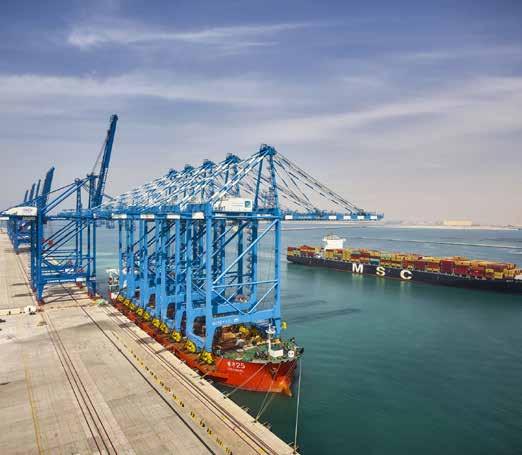
As part of its ongoing expansion efforts, Abu Dhabi Terminals (ADT), today announced the delivery of its latest batch of Ship to Shore (STS) cranes.
Abu Dhabi Terminals is the Management Company and operator of Khalifa Port Container Terminal (KPCT), the region’s first semi-automated terminal and one of the most technically advanced.
The five new cranes each with a 73 metre reach, 52 metre height and a lifting capacity of 90 tonnes are
integral to ambitious plans that aim to increase capacity at KPCT to 5 million TEU (twenty foot-equivalent units) by the end of 2020.
The STS cranes are among the largest in the world and will play a key role in ADT’s technologically advanced operational ecosystem at Khalifa Port, the flagship semi-automated deep-water port owned by Abu Dhabi Ports Group.
Captain Mohamad Juma Al Shamisi, Group CEO, Abu Dhabi Ports and Chairman of Abu Dhabi Terminals, said:
“Thanks to the wise strategic guidance of the leadership’s Economic Vision 2030, Abu Dhabi Terminals at Khalifa Port is well positioned to complete its expansion in record time and ahead of schedule, validating our commitment to becoming one of the leading container terminal operators in the world.”
“As Abu Dhabi’s gateway to the world, Khalifa Port continues to surpass world-class performance benchmarks, and through its growth is playing a vital role in contributing to creating
prosperity and opportunity for all those within the UAE.
“Offering world class levels of operational performance through continuous investment in our maritime assets and infrastructure enables Abu Dhabi to position its economy to reap the benefits of future non-oil growth for years to come.”
Ahmad Al Mutawa, Abu Dhabi Terminals CEO, said: “The purchase and delivery of these cranes demonstrates how continuous investment in our infrastructure and technology, helps us exceed customer expectations by constantly delivering the most efficient operational performance.
“Our current expansion project of Khalifa Port Container Terminal sets a new benchmark for container terminal expansion in the region, and ensures that ADT can continue to deliver world class levels of operational performance to our partners, customers and shareholders well into the future.”
ADT purchased the ultramodern cranes from Shanghai Zhenhua Heavy Industry Co. Ltd. (ZMPC) in China. This milestone follows the recent arrival of a batch of Automated Stacking Cranes which are also part of the expansion project, taking the total number of cranes at the terminal to 22.
The final phase of ADT expansion will see the Terminal linked to the Etihad Rail network providing direct rail connections across the UAE and regionally.
Bahri, a global leader in logistics and transportation, has announced that it has taken delivery of the new dry-bulk carrier ‘Sara.’
Built by Hyundai Vietnam Shipbuilding (HVS), a subsidiary of Hyundai Mipo Dockyard Co. Ltd. (HMD), the vessel increases the company’s fleet of dry-bulk carriers to six ships in line with its efforts to expand its marine capabilities and maintain its position as a leading dry-bulk carrier both regionally and globally.
The new Kamsarmax-class vessel is the first ship received
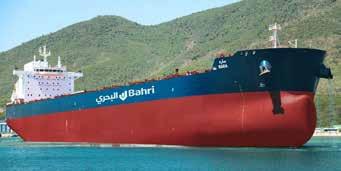
as part of the agreement signed between Bahri Dry Bulk and South Korea’s HMD in August 2017 to build and deliver four new dry-bulk carriers by 2020.
Eng. Abdullah Aldubaikhi, CEO, Bahri, commented:
“This new vessel represents an important addition to our fleet, and for Bahri Dry Bulk in particular, as it
Abu Dhabi Airports is supporting global efforts to combat the COVID-19 pandemic by ensuring the safe, secure and efficient transport of essential supplies and equipment through Abu Dhabi International Airport, in addition to facilitating a number of repatriation and humanitarian flights.
Abu Dhabi International Airport is the primary gateway to Abu Dhabi and a key global transit hub for passengers and airfreight, offering connections to the world’s key markets. Its specialist cargo facilities offer significant capacity for transhipments and the efficient handling of time and temperature-sensitive goods.
Shareef Al Hashmi, Chief Executive Officer of Abu Dhabi Airports, said: “This is a critical time for the aviation
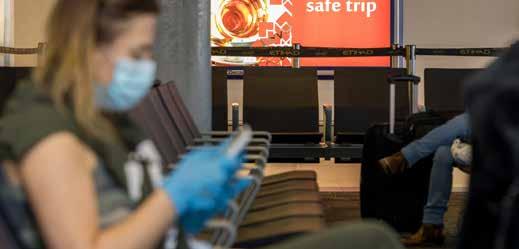
sector and our nation as we come together to combat the global COVID-19 pandemic. We are committed to ensuring the health and safety of our employees, stakeholders and passengers as we continue to operate our airports and facilities in order to provide
our communities and healthcare centres with the goods and equipment they need.”
“We do not take this responsibility lightly and have mobilised special teams to enhance our cargo operations and facilitate
reinforces our position as the foremost dry-bulk logistics provider in the region and beyond. The delivery comes against the backdrop of the global COVID-19 pandemic, underlining our commitment to expanding our business and upgrading our services, even in the most challenging of times. By further strengthening our fleet, we look to forward to enhancing our position as an industry leader and contributing to the Vision 2030 goal of establishing Saudi Arabia as a global logistics hub connecting three continents.” the necessary repatriation and humanitarian flights departing from Abu Dhabi International Airport. I am especially proud of our employees’ continued dedication and commitment during this challenging time,” added Al Hashmi.

Under the patronage of the Minister of Transport his excellency Eng. Saleh bin Nasser Al-Jasser, Saudi Arabian Logistics (SAL) launches its operations at the Model Cargo Village at King Khalid International Airport (KKIA). The launch was announced during a webinar attended by Abdulhadi Al-Mansouri, the President of General Authority of Civil Aviation, Sami Sindi, the Director-General of Saudi Arabian Airlines Corporation, Fawaz Al-Fawaz,
SAL Chairman, Mohammad Abunayyan, SAL Executive Board Member and Mohammed Al Maghlouth, CEO of Riyadh Airports Company.
In a speech, SAL CEO Omar Hariri said although the Kingdom is facing great difficulties and challenges because of COVID-19, the development in the country has continued. This integrated logistics project provides general and specialized handling services for cold chain goods, perishables, medicine, cars
and hazardous materials including express and air mail as well as e-commerce shipments.
The facility runs on an area of 42,000 square meters and includes a 20,000 square meters warehousing with an area of 6,600 square meters for exported goods, 6,500 square meters for e-commerce and 5,200 square meters for cold storage shipments. The capacity of the entire facility reaches 450 thousand tons a year. The handling operations are performed through
16 Loading dock. The facility has been equipped with state-of-the-art technology.
Hariri also, pointed out that the new cargo facilities in Jeddah’s King Abdulaziz International Airport will be ready this September with a total area of 131,000 square meters of which 65,000 square meters will be dedicated to warehouses. The facilities will help enhance the flow of cargo to and through the Kingdom and make the country a global logistics hub.
As part of its keenness to align with the vision of the UAE’s leadership to stimulate the economy and support different sectors of the business society, Dubai South Free Zone announced economic stimulus incentives to mitigate the effects of the current situation that the UAE and the world is going through. This announcement is part of Dubai South Free Zone’s unwavering commitment to foster a business-friendly environment and meet the needs of its valued customers.
H.H. Sheikh Ahmed bin Saeed Al Maktoum, Chairman of Dubai Civil Aviation Authority and Chairman and Chief Executive of Emirates Airline and Group, and also Chairman of Dubai Airports said: “Dubai South is proud to be part of the emirate’s overall value proposition and we are keen to enhance its competitiveness and attractiveness to ensure it can attract more domestic and foreign direct investment. Our current customers are our most important asset; therefore, our focus is to provide them with all our support in these challenging times and beyond, so that they will be able to support the national economy and contribute to GDP growth. The stimulus package is part of our mandate to exert our tireless efforts and align them with the initiatives and decisions of our government so that Dubai will remain a soughtafter business destination and maintain its prominent position on all global performance indicators.”
As the continuity of businesses is a priority, Dubai South will offer individuals and companies in its free zone flexible payment plans with easy instalment schemes as well as waivers of penalties on late renewals and cancellations of contracts and licenses. Customers will also benefit from a 20 per cent reduction on licence fees renewals, while first year license fees for new customers in the aviation, logistics and e-commerce sectors and the Business Park will be waived.
In addition, customers who operate in the Business Park Free Zone will have the opportunity to apply for a lease deferral request of up to six months, which will be granted on a caseby-case basis. Meanwhile, Dubai South Business Centre customers renewing their contracts between now and October 2020 will receive a reduction of up to 25 per cent on their renewal fees as well as the flexibility to settle annual rental fees in up to four installments. Furthermore,
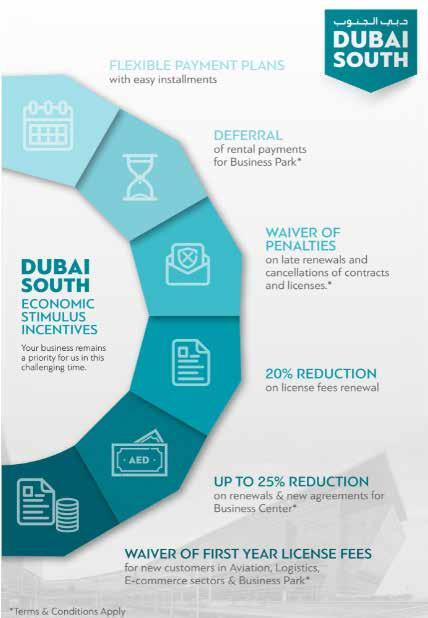
individuals and companies looking to establish a new business will be granted rental fee reductions of up to 25 per cent.
Khalifa Al Zaffin, Executive Chairman of Dubai Aviation City Corporation & Dubai South, said: “This incentive package complements the measures announced by the Government
of Dubai and its ongoing efforts to reduce the costs of doing business in the emirate and help enhance corporate liquidity. The support will enable companies to maintain their resources and employees and to be fully prepared to continue their operations, especially as the lockdown is being gradually lifted, paving the path towards gradual business cycle normality.
COVID-19
Abu Dhabi Waste Management Center (Tadweer) announced the operation of three mobile medical waste incinerators in Abu Dhabi to support the precautionary measures taken by various healthcare entities to prevent the spread of Novel Coronavirus (COVID-19) outbreak. The incinerators are operated at Al Mafraq Hospital and the recently launched field hospitals in Abu Dhabi including the field hospital at Abu Dhabi National Exhibition Centre (ADNEC) and the Emirates Field Hospital in Mohammed Bin Zayed City.
With capacity ranging from 150 kg to 300 kg per hour, the new facilities can treat medical waste at temperatures of up to 1200 degrees, and are equipped with advanced purification systems to keep the environment clean and safe. The process ensures that all waste related to Coronavirus disease is treated with high flexibility at various treatment locations.
Manufactured in the United Kingdom, the facilities meet the highest international and European Union standards, and are fitted with a mobile platform that allows them to operate from different locations under different conditions. Furthermore, all treatment equipment has been tested according to industrial heat treatment equipment standards. Etihad Cargo was appointed to transport the three incinerators to Abu Dhabi in accordance with

the highest safety standards that such logistical operation commands.
His Excellency Dr Salem Al Kaabi, General Manager of Tadweer, said: “The operation of mobile incinerators for treating medical waste is line with Tadweer’s strategic vision to provide best-in-class solutions in disposing medical waste, especially waste resulting from Coronavirus treatment.”
Al Kaabi added: “Tadweer has taken a keen interest in providing the latest equipment as well as following
international best practices in managing medical waste to achieve the highest waste treatment rates at various locations. In addition, Tadweer seeks to preserve the health and safety of Abu Dhabi community and to protect its environment from the risks arising from waste generation. ”
For his part, Abdulla Mohamed Shadid, Managing Director, Cargo and Logistics Services at Etihad Aviation Group, said “We extend our sincerest thanks to Tadweer for entrusting Etihad Cargo with the air transportation
of these strategic equipment into the UAE. This reaffirms our active role as the National Carrier of the UAE, working alongside local entities to support the concerted national efforts in combating the COVID-19 pandemic,”
Using the latest international operational safety standards, the mobile incinerators can treat the fourth type of biohazardous waste, red medical waste disposal bags, surgical dressings, plastic testing devices, flasks, yellow bags, bandages, gauze and pharmaceutical waste.



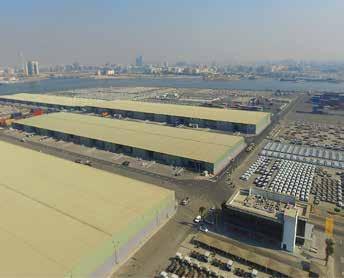
LogiPoint at Jeddah Islamic Port established the first bonded corridor connecting the Bonded and Re-Export Zone at Jeddah Islamic Port and King Abdulaziz International Airport to facilitate the multimodal movement of cargo.
The trial conducted on a shipment that arrived by sea freight to LogiPoint Bonded and Re-Export Zone at Jeddah Islamic Port then shipped onward to its final destination in the Netherlands by airfreight through King Abdulaziz International airport.
With the support of the Saudi Customs and Jeddah Islamic Port and in line with vision 2030 and the National Industrial Development and Logistics Program (NDLIP), the success of this shipment increases the
competitiveness of the region. It creates an efficient and cost-effective sea-air and airsea link to establish Jeddah as a preferred multimodal transshipment hub.
LogiPoint CEO Farooq Shaikh said, “The bonded corridor facilitates trade for customers by providing a multimodal bonded access to regional target markets combining sea, land and air freight. It also gives Jeddah a significant advantage to compete in the transshipment cargo segment”
LogiPoint is always making dynamic efforts to introduce international concepts and solutions towards enhancing logistics efficiency to attract foreign investors. Its strategic location and the worldclass facilities have which strengthen the position of Jeddah Islamic Port a major logistics hub.
COVID-19

Agility, a leading global logistics provider, has launched Global Response Aid (GRA), a Dubai-based company established to procure certified diagnostic, testing and protective products and offer services such as a contact-tracing app and mobile testing used in the detection, treatment and prevention of COVID-19.
GRA works directly with
trusted manufacturers around the world to source safe, effective products for governments, health authorities and public institutions; frontline medical facilities such as hospitals and clinics; nongovernment organizations involved in the COVID-19 fight; and companies looking to safeguard their workers and workplaces.
GRA-sourced products include top-quality ventilators, thermal detection equipment, thermometers, masks, goggles, protective suits, cleaning and sanitation supplies, and new pointof-care test kits that can take pressure off hospital emergency rooms.
A mobile phone app developed by GRA helps
stop the spread of the virus through community-driven contact tracing and alerts. The app offers users the ability to record, time stamp, and geo-reference test results.
GRA also is deploying Mobile Diagnostic Testing Vehicles and trained teams that can perform COVID-19 testing safely on site at schools and workplaces.

Analysis by Dubai Chamber reveals consistent and positive performance of e-commerce platforms during Covid-19
A recent analysis by the Dubai Chamber of Commerce and Industry revealed that e-retail companies in the UAE have succeeded despite the challenges of high demand due to the spread of Coronavirus (Covid-19) and disruption of supply chain worldwide. The companies have managed to achieve benefits beyond the domestic market to include neighboring markets as well.
The analysis, based on updated data from Euromonitor attributed this success to the fact that it was due to the support of government initiatives, the presence of modern infrastructure, and a strong logistical sector, which was reflected in the resilience of ecommerce in the UAE.
The analysis reviewed the percentage of goods that are not in stock in 38 major economies around the world, and monitored the levels of inventory for the major e-commerce platforms, and the daily percentage of stock keeping units (SKUs) that
were marked as goods not available on the retailer websites for each country.
Table 1 (right), compares the current levels of essential items availability (on Apr 21), with the pre-pandemic levels (on Jan 21) across 38 advanced and emerging market economies. Countries are ranked based on their figures during April 21; with lower percentages of out of stock essential items indicating limited disruption due to COVID-19 restrictions.
These data show that the UAE occupies an advanced position globally, due to the UAE’s pivotal position in the global trade map, its large storage capacity and its extensive logistical networks which contributed to record low percentages of materials that were out of stock before the outbreak of the epidemic (3.4% on January 21).
The country’s position further advanced
after the outbreak of the epidemic, as unified exceptional measures taken by the government, logistical support companies and commercial companies helped to ensure the continuous flow of necessary materials during the emerging pandemic, and this resulted in a decrease of this percentage to 1.8% by April 21, which made the UAE occupy sixth position in the world, surpassing many developed economies.
The benefits of the UAE’s strong logistics and warehousing sector extend beyond the domestic market to neighboring markets, for example, Saudi Arabia, which has a similar low rate of 2.2%, given that the Kingdom is the top regional trading partner for the UAE.
The emerging market economies in general recorded a low percentage of the basic materials that ran out of stock because most of their products are obtained locally, while the developed markets have more sophisti -
cated supply chains as a large part of their products are brought in from abroad, in order to take advantage of the low production costs. This explains why the great impact of the emerging epidemic is more evident in e-commerce supply chains in Europe and North America.
India is an exceptional case among emerging market economies, and this is already reflected in its record of a high percentage of commodities that have run out of stock even before the outbreak of the epidemic. This could indicate the existence of challenges facing the e-commerce environment where it is hampered by the lack of advanced infrastructure, which is a key factor to facilitate the flow of goods.
Breaking down product availability in UAE by category reveals that the daily proportion of out of stock items are maintained low across the board (see table 2, below).
According to the availability schedule of

products in the Emirates, stocks of low-life products, such as fresh food, are always refilled with a rate of products not available in stock at zero or close to zero for basic materials such as eggs, poultry, starchy roots and vegetables. On the other hand, items with a
long shelf life may sometimes experience slightly higher rates of daily stock outs. This is understandable, as is often the case during a pandemic as many consumers panic and tend to buy and store items that fall under home care and canned food categories.
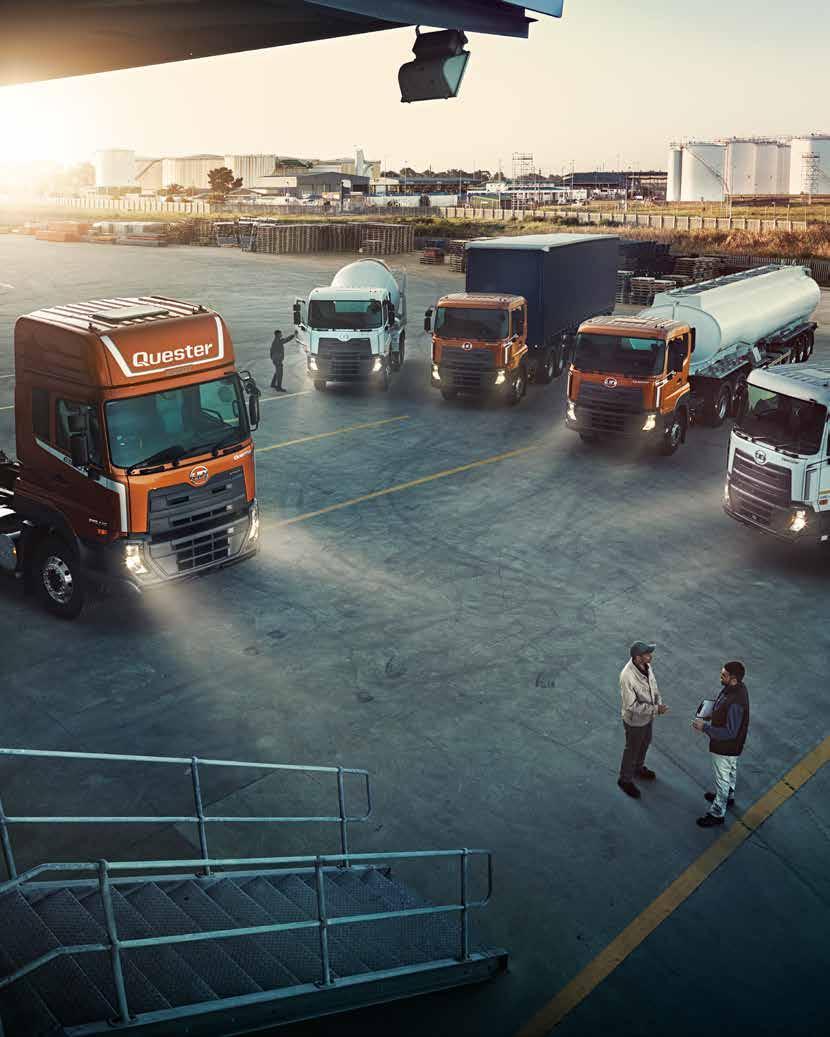
New Quester’s flexibility makes it suitable across a variety of applications and segments such as general cargo, long haul and construction.
And now, ESCOTs’ added power and performance in New Quester means assignments can be carried out with increased fuel and driver efficiency.
Optimized specifications such as reduced tare weight allow you to carry more. And with the introduction of smart new connected features such as telematics, you can stay on top of your tough daily schedule.
A smart move for your business
Ajman Free Zone, which is widely recognized as one of the UAE’s leading free zones and highly reputed for its support for international businesses and move to enhance the performance of local companies and their business transactions, has been conferred ‘Superbrands’ status by Superbrands Worldwide, the world’s largest independent arbiter of branding. The coveted title was given in honor of Ajman Free Zone’s leading role in facilitating business procedures, as well as in recognition of its excellent and comprehensive e-Services.
A distinguished panel of judges, composed mainly of members of the Superbrands Council and marketing experts from the UAE business community, oversaw the screening of this year’s list of nominees. The panel later commenced in the casting of ballots during a rigorous offline and online voting process according to specific and accurate criteria. The online voting system was made available to the country’s senior managers and marketing professionals to expand the award’s voting base.
Eng. Ali Abdulla Bin Towaih Al Suwaidi, Director General of Ajman Free Zone, said that the Superbrands award reflects the free zone’s commitment to further strengthening its leadership in driving the economic growth and comprehensive development of Ajman. He stressed that Ajman Free Zone’s intensified efforts will continue to provide innovative solutions and attract more global investors to promising opportunities in Ajman, the UAE, and regional markets in general.
Al Suwaidi added: “In line with the directives of H.H. Sheikh Ahmed bin Humaid Al Nuaimi, Chairman, Ajman Free Zone, we are moving forward with our efforts to develop innovative products and high-profile services, in addition to launching leading initiatives that will make a positive impact and real difference in the local business community. Having a strong brand is an advanced step towards achieving our ambitious aspirations, while our active strategic partnerships will continue to serve as the cornerstone of the services we offer to companies from various vital sectors. We reaffirm our unwavering commitment to
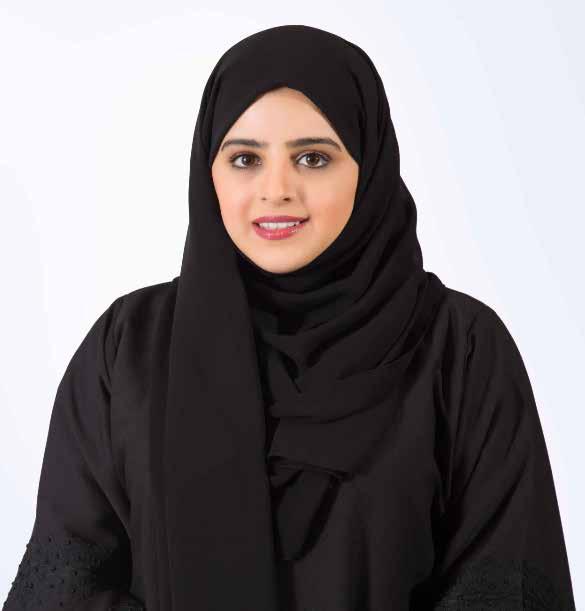
further instill innovation and creativity in our culture to reach new levels of excellence and leadership in the near future.”
“It is a great privilege for our efforts to be recognized by Superbrands, particularly our internationally accepted management practices, customer service, marketing and innovation-related initiatives, and service and infrastructure development and modernization. On behalf of our organization, we would like to thank the judges for their confidence in our brand. We would also like to say congratulations to our fellow winners, and to all our staff members, we dedicate this award to you,” Sheikha Abdul-
la Al Nuaimi, Executive Director of Marketing & Sales, added.
Mike English, Director of Superbrands Middle East, commented, “Differentiating one’s proposition from a growing number of competitors through effective branding has become vital. Geographical and information boundaries are being reduced so customer choice is increasing while making comparisons against alternatives faster and easier. Product and service specifications are increasingly similar and innovation times reduced so that the only key differentiator in the longer-term in most cases is brand personality and positioning.”
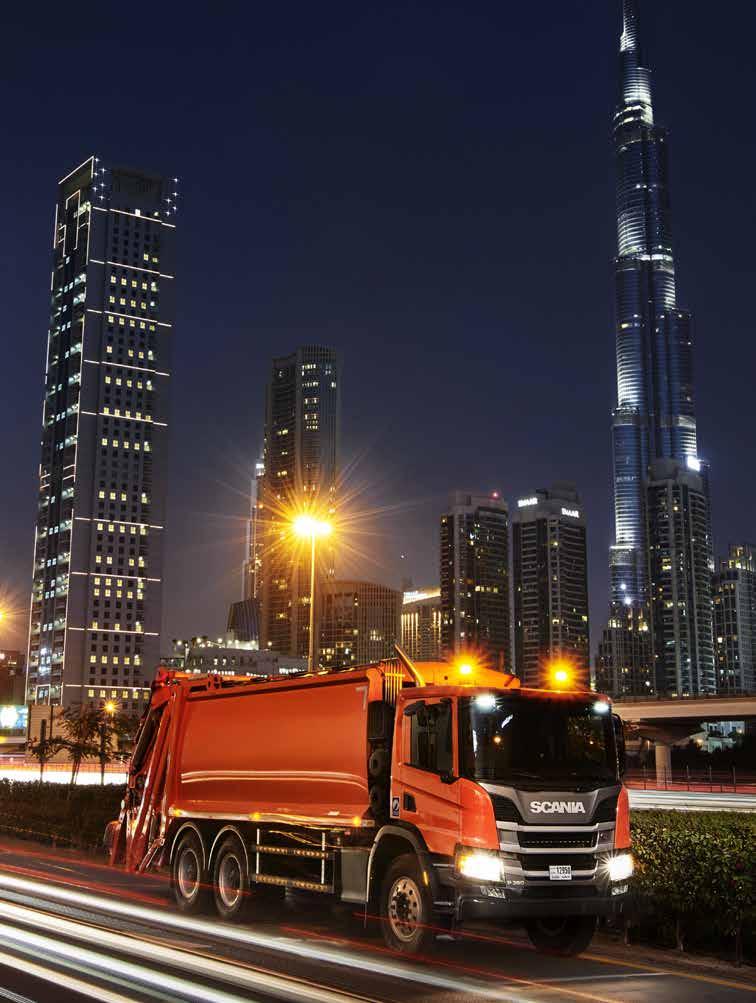

Saud Abu Al-Shawareb tells LNME how Dubai Industrial City has emerged as a strategic hub for logistics and manufacturing industries
As the global economy restarts and business adjusts to a new sense of normal, Dubai’s logistics and manufacturing industry can proudly reflect on its response to the pandemic. An unsung hero in the UAE’s fight against COVID-19, its readiness and preparedness delivered social and economic value on a national, regional and international level.
This came into focus when Dubai Industrial City delivered on the vision of the UAE leaders to provide aid to those in need. We allocated additional strategic storage capacity for the International Humanitarian City to supply medical aid around the world.
It enabled the World Health Organization, the United Nations Children’s Fund, the United Nations High Commissioner for Refugees, and the United Nations World Food Programme to store, pack and ship personal protective equipment, testing kits, surgical gloves and masks, disinfectants and other items of

emergency medical aid.
To date, I am proud to say that more than 150 shipments of supplies from the community have been distributed to more than 100 countries. This represents approximately 80% of the WHO-procured supplies sent to support the United Nations’ agency’s global COVID-19 medical response.
Dubai Industrial City emerged as a strategic hub ready and able to support the international community, and this was made possible thanks to our world-class infrastructure. We are strategically situated close to Al Maktoum International Airport, Jebel Ali Port and major highways which enables business partners to easily export goods to two-thirds of the world’s population in eight hours. Equally, this means we are ideally located to receive and store goods from all over the world before distributing them to local, regional and international markets.


We understand the importance of infrastructure. In terms of development progress, we are close to completing two highway extensions linking our business hub to Emirates Road earlier this year. The infrastructure has provided heavy-tow trucks with direct access to the causeway linking Abu Dhabi with the Northern Emirates, Oman and Saudi Arabia. We also inaugurated a new 14,000-bed worker accommodation that brings the total number of beds to more than 56,000. The modern, wellequipped, buildings comprise living quarters, dining areas, leisure facilities and other best-inclass amenities.
To date, we have made direct investments of more than AED5.2 billion in our ecosystem to improve ease of doing business and create an environment that supports players in the light and medium manufacturing sectors.
Among the key trends to emerge from the pandemic is that the UAE has greater food security than many of us might have realised. Despite the fact that 60-90% of the food consumed in the GCC is imported, our hypermarkets remained fully stocked during the lockdown. Logistics and an integrated supply chain has been crucial to ensure locally-produced food arrives just in time. For this to work, however, you
“As we look to the horizon and futureproof our vital sectors, manufacturing and logistics companies in Dubai and the UAE will continue to strive towards a common goal: unlocking economic growth.”
need an efficient distribution network with direct access to major roads and storage facilities in close proximity to airports and ports.
In 2019, we welcomed new food-related business partners to our community. China’s Baofeng Grain Mills will open the region’s first fresh rice noodle factory with a capacity of 250,000 kg per day. Badia Farms is building a high-tech vertical farm that will
produce 3,500 kg of high-quality fruits and vegetables per year.
Technology-enabled production will contribute to the UAE’s food security, but the effects of industrial innovation extend far beyond increasing output of edible goods. We have witnessed an acceleration of trends that were in motion before the pandemic, namely the digitisation of warehouses, supply chains, fulfilment centres and manufacturing facilities.
The fourth industrial revolution is tipped to create major opportunities across logistics. Robotics will make warehouses smarter, interconnected and less labour-intensive and, alongside artificial intelligence, it will create new jobs moving forwards.
In 2018, the World Economic Forum predicted that machines will carry out more current work-based tasks than humans by 2025, and the rise of robots and algorithms will create millions of jobs. I do not believe the aftermath of COVID-19 will change this prediction; it may even accelerate the widespread adoption of automation and AI.
Our business partner Unilever is one of many companies at the forefront of new technologies. The FMCG giant operates an AED1bn Personal Care Plant that manufactures household beauty and personal care brands and was named an ‘Advanced Industrial Revolution Lighthouse’ by the
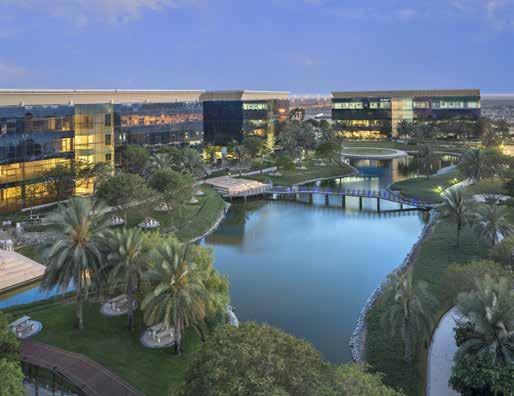
Across the industry, predictive analysis will empower warehouse operators to forecast volume demand for goods and identify risks in the supply chain at speed. Blockchain will add greater transparency and traceability to supply chains, making them more open, sustainable and secure. And enhanced data and analytics capabilities from the Internet of Things will improve productivity and profitability.
As we look to the horizon and futureproof our vital sectors, manufacturing and logistics companies in Dubai and the UAE will continue to strive towards a common goal: unlocking economic growth. And in this new era – one that I should point out holds plenty of promise alongside very real challenges – the masterplan for our community becomes even more important.
This is because our ecosystem is divided into sector-focused zones representing minerals, base metals, food and beverages, trading and distribution, transport, chemicals, and machinery and equipment. What this has done is create an end-to-end supply chain representing every aspect from raw materials such as cement and asphalt to vertical farming, production, packaging, warehousing and logistics.
We have more than 550 million sq ft of industrial land, providing ample space for self-
build. We also have 8.4 million sq ft of leasable area, alongside high-quality, high-powered and scalable warehouse units ranging between 5,000 sq ft and 11,500 sq ft. This provides companies with the flexibility to merge multiple warehouses and create larger industrial units.
This is advantageous, but Dubai Industrial City’s greatest asset is our community. We have successfully created a vibrant live-work-play ecosystem with continued infrastructure investment, the AED 100m Sapphire Mall which was completed in December 2018, and various year-round services to improve engagement among our 750 business partners and 56,000 workers living in Dubai Industrial City.
Logistics and manufacturing may have been among the unsung heroes during the pandemic, but the social and economic value of these critical non-oil sector kept the economy going during the lockdown and will ensure a swift recovery. As a catalyst for growth, Dubai Industrial City will contribute to this. We are key enabler and strategic driver of the Dubai Industrial Strategy 2030 and will work alongside our business partners to unlock the UAE’s potential to become a global platform for knowledge-based, sustainable, innovative industries.
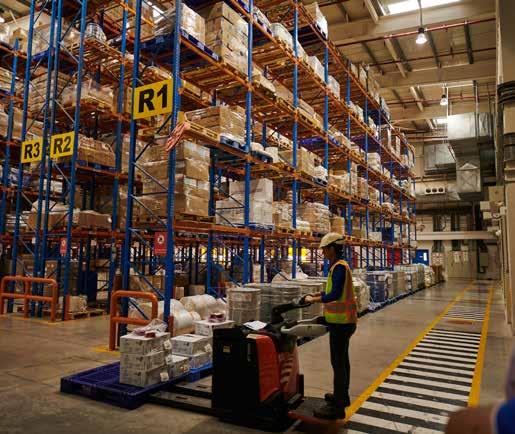
Emirates has unveiled multi-faceted measures for employee and customer care at every step of the travel journey, redefining safety and hygiene standards on board and on the ground
Emirates has unveiled multi-faceted measures for employee and customer care at every step of the travel journey, redefining safety and hygiene standards on board and on the ground. The new measures took effect today, with the resumption of regularly scheduled passenger flights to nine destinations.
“Emirates is implementing a comprehensive set of measures at every step of the traveller’s journey, to enhance the sanitisation of all touchpoints, and ensure the health and safety of our customers and employees. The risk of catching an infection on an aircraft is already very low, but we have spared no effort in reviewing and redesigning every step, from check-in to disembarkation. Every measure implemented is an additional reduction in risk, and taken altogether, our aim is really to make flying as safe as possible.
“We are working with all the stakeholders in Dubai - including the airport, immigration, health and aviation authorities to implement such measures, and we will continue to review and consult expert advice for any development and changes. We are all aware that we have to adapt to different practices during this pandemic in our day to day activities.
All these measures, in combination with the proactive pandemic management strategies that
the UAE has taken, show the seriousness with which we are taking the health and safety of our local and global communities and will give confidence to the public,” said Adel Al Redha, Emirates’ Chief Operating Officer.
Emirates has introduced complimentary hygiene kits to be given to every passenger upon check in at Dubai International Airport and on flights to Dubai. These kits comprise of masks, gloves, antibacterial wipes and hand sanitiser. The hygiene kits supplement a slew of additional measures already introduced to keep customers safe.
Gloves and masks are mandatory for all customers and employees at the airport in Dubai, while only masks are mandated on Emirates flights. On arrival at the airport, thermal scanners at various areas monitor the temperatures of all passengers and employees. Physical distancing indicators have been placed on the ground and at waiting areas to help travellers maintain the necessary distance at check-in, immigration, boarding and transfer areas.
The airport team has also installed protective barriers at each check-in desk and immigration counter to provide additional safety reassurance to passengers and employees during interaction over the counter.

Customers travelling through Dubai International Airport and transferring onto another flight, will go through thermal screening upon disembarkation. Transfer desks at the airport have also been installed with protective barriers as a precautionary measure. Airport staff, dressed in personal protective equipment (PPE) will direct customers from a safe distance for extra assistance. Customers will be given an additional hygiene kit at the gate before boarding their connecting flight.
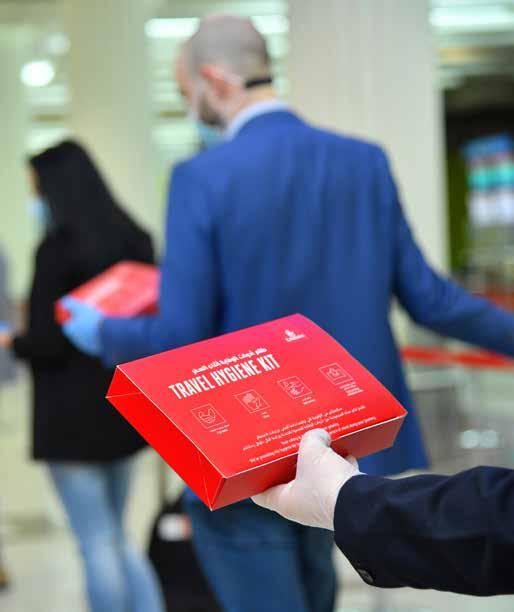
The boarding sequence has been staggered and passengers board by row, from the last row to the first, in small numbers. The waiting area has also been modified to ensure all customers observe social distancing. Emirates boarding agents, dressed in personal protective equipment (PPE), will facilitate the boarding sequence. The boarding gates are deep cleaned and disinfected after the boarding of every flight.

magazines and print reading material will not be available during this time. In premium classes, single use menus and wine lists will be provided to passengers. Comfort items such as mattresses, pillows, blankets, headphones and toys will be hygienically sealed. Emirates will resume its service with hot meals, using high quality, cutlery and crockery, sterilised before each use. Cabin baggage have to be checked-in, and customers can only bring essential items such as a laptop, handbag, briefcase or baby items on board. Customers are reminded to bring pens to fill out Health Declaration Forms required for some destinations.
Emirates’ modern aircraft cabins have been fitted with advanced HEPA air filters which remove 99.97% of viruses and eliminate dust, allergens and germs from cabin air for a healthier and safer on-board environment. After its journey and on landing in Dubai, each aircraft will go through enhanced cleaning and disinfection processes to ensure safety and proper sanitation.
All cabin crew on board will be fully kitted out in PPEs. To uphold the highest standards of safety and hygiene, Emirates has added a cabin service assistant (CSA) to the crew complement on flights over 1.5 hours. The CSAs will ensure lavatories are cleaned at frequent intervals of every 45 mins. Each lavatory has been equipped with sanitising soap and hand washing instructions.
To minimise the risk of infection by touch,
To safeguard its employees, Emirates’ flight and cabin crew are provided with cars for pick up and drop off at their home at the beginning and end of their duty. Operating crew check in for their rostered flights in a dedicated crew airport facility before being transported to the aircraft. Layovers in destination cities have been reduced where possible and on long-haul flights, where layovers are necessary, crew are put up in individual rooms in hotels. On return to Dubai, where all Emirates cabin crew are based, COVID-19 tests are done on all crew. Every crew member has been mandated a 14-day quarantine in their homes after every flight, unless they are on duty.
Global coordination needed to ensure new measures are driven by data and evidence, says ACI and IATA
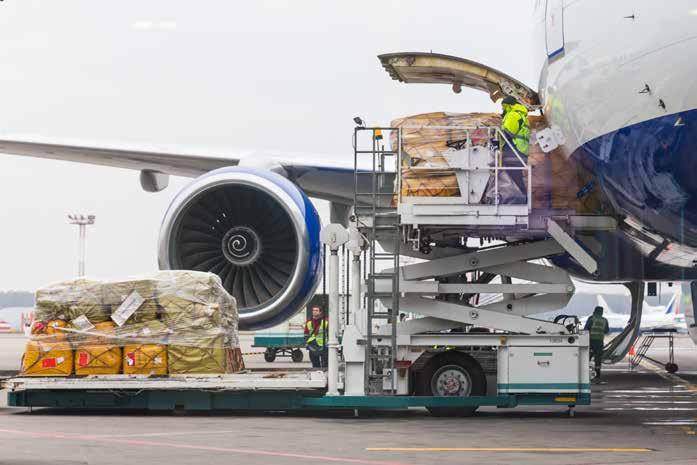
Airports Council International (ACI) World and the International Air Transport Association (IATA) have called on governments to ensure any new measures introduced for airports and airlines in the wake of COVID-19 are supported by scientific evidence and are consistent across the world.
The aviation sector has been brought to a standstill and a balanced and effective restart and recovery depends on collaboration among the key participants in the global
aviation ecosystem.
ACI and IATA have jointly issued a paper laying out a pathway for restarting the aviation industry - Safely Restarting Aviation - ACI and IATA Joint Approach. Airlines and airports have cooperated to build a roadmap for resuming operations which reassures the travelling public that health and safety remain the overall priorities.
Airports Council International (ACI), the trade association of the world’s airports,
was founded in 1991 with the objective of fostering cooperation among its member airports and other partners in world aviation, including the International Civil Aviation Organization, the International Air Transport Association and the Civil Air Navigation Services Organization. In representing the best interests of airports during key phases of policy development, ACI makes a significant contribution toward ensuring a global air transport system that is

safe, secure, customer-centric and environmentally sustainable.
IATA (International Air Transport Association) represents some 290 airlines comprising 82% of global air traffic.
The joint approach proposes a layered approach of measures across the entire passenger journey to minimize the risk of transmission of COVID-19 at airports and onboard aircraft, and to prevent aviation becoming a meaningful source of international re-infection. Such measures should be globally consistent and subject to continued review, improvement, and removal when no longer required, to ensure an even recovery.
ACI and IATA are both central members the COVID-19 Aviation Recovery Task Force (CART) being led by the Council of the International Civil Aviation Organization (ICAO).
CART enables the collaboration - among governments and between governments and industry -that is vital to ensure the harmonization and consistency of measures that are essential to restoring air connectivity and passenger confidence in air travel.
“Airports and airlines have come together with ICAO and the wider aviation industry to address the biggest challenge ever faced by commercial aviation in restarting a global industry while continuing to halt the spread of COVID-19,” ACI World Director General Angela Gittens said. “There is currently no single measure that could mitigate all the risks of restarting air travel but we believe a globally-consistent, outcome-based approach represents the most effective way of balancing risk mitigation with the need to unlock economies and to enable travel.”
IATA’s Director General and CEO Alexandre de Juniac said, “Safety is always our top priority and that includes public health. Restoring air connectivity is vital to restarting the global economy and reconnecting people. Our layered approach of measures recommended by airports and airlines safeguard public health while offering a practical approach for a gradual restart of operations. It is important to remember that the risk of transmission on board is very low. And we are determined that aviation will not be a significant source of re-infection. We are working continuously with governments to ensure that any measures put in place are done so consistently and with scientific backing. That is key to restoring public confidence so the benefits of safely re-starting aviation can be realized.”
Saikat Kumar, Founder and CEO of SKYCAP Investment Management
Ltd, tells us how the logistics sector can be resilient in the post pandemic economic recovery

The logistics sector in the country is expected to contribute 8.0% to the UAE economy by 2021, up from the current 5.4% as stated by the Federal Competitiveness and Statistics Authority. The country’s integrated free zones, massive investments in infrastructure and fastgrowing e-commerce are driving the logistics industry.
Based on the International Monetary Fund’s January 2020 update, the slowdown in the worldwide manufacturing sector seemed moderating with the IMF’s projected global GDP increase of 3.3% in 2020 and 3.4% in 2021, or its projected increase in global trade volumes by 2.9% and 3.7% over the same periods. However, as a result of the Covid-19 pandemic, this
is very unlikely to be realized.
Whilst there will be a short to medium term impact on trade volumes across the globe as a result of the pandemic, it is likely that the UAE’s industrial and logistics sectors will be materially impacted given its re-export hub status. Despite this, the long-term fundamentals for the industrial and logistics sector in the UAE remain resolute.
First, with its modern transport infrastructure, UAE ranked 8th globally according to the World Economic forum’s Global Competitiveness Report 2019. Also, with its central location that allows access to over 5.0 billion peo-
ple within an eight-hour flight time, UAE, no doubt, is an attractive proposition for global businesses looking to extend their footprint into emerging markets by using the country as a regional supply and re-distribution gateway.
Second, UAE’s soft infrastructure continues to improve to support the wider business environment. Whilst its overall Ease of Doing Business rank has fallen from 11th in 2019 to 16th in 2020, components of the index including trading across borders, starting a business and protecting minority interests have improved over the last year. This, along with the introduction of 100% foreign ownership, dual licensing and reduction in business fees across industrial and logistics Free Zones is likely to
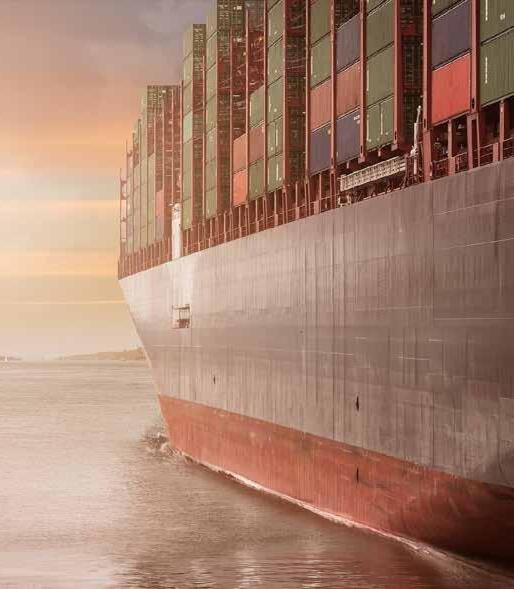
continue to attract multi-nationals in setting up operations in the UAE.
In addition to this, there are stimulus packages granted by the governments of Abu Dhabi and Dubai, alongside a range of measures taken by the UAE central bank to help support the economy through this extremely difficult time, and the manufacturing and logistics sector have been a particular focus in these relief programmes. For one, Abu Dhabi either abolished or reduced fees and charges in the commercial and industrial sector for up to a year. This included the removal of Tawtheeq fees, penalty charges, subsidized water and electricity charges and connection fees and a reduction of 25% for industrial land leasing fees on any new contracts.
Similarly, the Dubai government has also introduced a range of measures to support the economy, which initially have been enacted for a three-month period and will be reviewed at the end of this period. The initiatives impacting the industrial and logistics sector include a 20% discount on customs fees imposed on imported productions which are locally sold, a freeze on the 2.5% market free levied on all business operating in Dubai, the cancellation of the AED50,000 bank guarantee required to undertake customs clearance, a 90% reduction in fees associated with submitting customs documents and the cancellation of down payment requirements for requesting instalment based payment plans of government fees. There is
confidence that, with all these in place, the logistics sector is expected to revive and see continued growth in the long term.
Apart from the stimulus provided by the UAE government, the investment is linked to how quickly demand returns. Demand side is the real key to recovery and it will be challenging to the government.
Protection of SMEs: The SME sector represents more than 94% of the total number of companies operating in the UAE and provides jobs for more than 86% of the private sector’s workforce. First, the government is providing and should provide more stimulus package to SMEs. Second, a considerably big push is granting SMEs 0% VAT for a period of three to six months, depending on their business –a six-month holiday will be most relevant to trades like travel, F&B, retail and so on which will induce demand.
Heavy Investment in Cold Storage: Government initiatives that promote economic diversification are expected to boost recovery and growth. The economic growth induces demand for cold storage, which is primarily driven by pharmaceutical and food and beverage sector. Around 80% of food products are imported in UAE, which underscores the importance of cold storage and cold chain transportation. Companies such as RSA logistics, Al-Futtaim logistics, Agility have invested heavily and will invest more in cold chain to acquire competitive advantage in the emerging market of cold chain.
Increase Outsourcing & Last Mile Delivery: Strategic geographical location of UAE, EXPO 2020, development of free zones and expansion of ports and seaports has led to an influx of huge freight volume leading to outsourcing of various requirements such as labeling, packing, and knitting and many more. The booming e-commerce has also promoted contract UAE logistics Industry to enhance customer satisfaction through efficient lastmile delivery. Finally, companies outsource the handling of heavy and dangerous goods to ensure expert handling and compliance of rules and regulations.
Increase of Ecommerce business: Ecommerce giants such as Noon.com and Amazon will definitely invest more in the UAE region and will create a robust supply chain ecosystem. The penetration of E-commerce and online shopping will increase the demand for warehouses and logistics.
COVID-19 raises the bar on how freight and shipping companies operate, says Posta Plus COO, Ahmed Jumayee
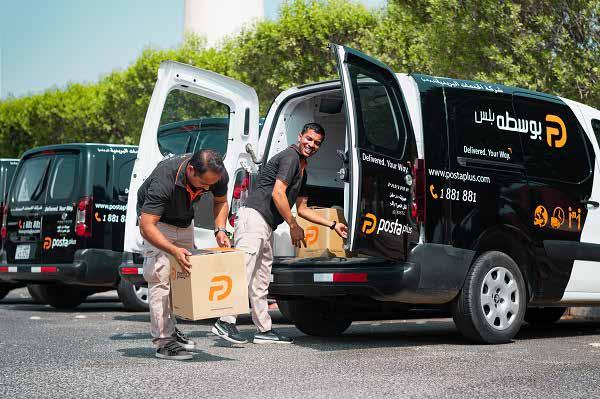
According to recent research by Mordor Intelligence; Freight and logistics industry in UAE was supposed to witness a CAGR of ~5.8% during the forecasted period of 2020-2025 due to the presence of advanced logistics infrastructure and the strategic position of the country as a transshipment point. The unprecedented and unexpected situation confronted these promising figures resulted from the outspread of Coronavirus, which changed the formula allowing new insights to take place. The main question now is, how did shipping companies deal with this global emergency? How will their handling the crisis determine not only their future but also the entire industry?
Amidst the preparations for the Chinese New
Year and the promising year of 2020, COVID 19 started hitting the world and reshaping its plans.
Freight and Shipping companies are always in the front line, and from the very beginning of the outbreak of the Coronavirus in China in November 2019, which is a huge market for e-commerce industry and a large portion of the international shipments come from there, they realized that unprecedented measures need to be taken to cope with this unprecedented situation.
More than 200 freight and shipping companies in the UAE found themselves in unanticipated situations where they had at the same time to meet their customer’s needs and anticipate them. So how did they solve this dilemma?
The answer falls under two magical words;
flexibility and agility to change, to cope, to adopt new methods, and to anticipate and expect even amongst all this uncertainty that accompanied the global emergency.
Pplus is one of the regional shipping companies established in Kuwait in 2005 and adopted from the very beginning, an innovative approach that focuses on the future.
According to Ahmed Jumayee the COO of Pplus, “The adoption of this approach helped the company, that operates in UAE through an equipped operation team and a state-ofthe-art fleet of vehicles, handle the situation in a better way maximizing the pros and minimizing the cons”.
Jumayee believes that it was necessary to han-
dle the crisis on two parallel levels; dealing with the current situation and while keeping an eye on the daily and even hourly updates planning for the near future.
The COO of Pplus emphasized, that it was challenging for the team to deal with the situation as they needed to double and triple its efforts around a 24\7 schedule to maintain the same level of service.
According to Juamyee Pplus office became a beehive where every single member of the team was assigned a specific task.
“The leadership of Pplus always believes that acting fast is the ideal approach and especially during times of crisis”, The COO declared.
Ahmed Jumayee listed the actions the company took during this unprecedented time: “Quick yet vital steps were taken; a crisis committee was formed to take the critical decisions thorough out the crisis, the leaders were educated about the
social and economic context of the situation for them to take well-studied decisions, responses and transparent communication with customers were developed taking into consideration the new procedures and policies set by the government and the airports, reorientation of the ecosystem was adopted, and most importantly the safety of the employees who were at the front line since then until now was considered as a high priority that won’t be gambled under any circumstance”.
Jumayee declared that the situation resulted from COVID 19 brought new concepts for remote work: “Our Customer Support team was provided with the latest systems needed to communicate and interact with customers while working from home where they were fully operating as if they were working from the office thanks to the developing systems that all of them were equipped with and trained on by the beginning of the crisis. Our connections and commu-
nication with airports and airlines made it easier for our team to keep our customers informed with the updates”.
According to Jumayee Pplus enhanced its current resources and benefitted from all team’s potential, converting this crisis into an opportunity to grow and thrive. Shipping was one of the most growing industries during the crisis and although studies are now taking place to understand customers’ behaviors companies should now focus on capturing this moment of success and build on it.
It becomes evident that the companies who had a well-planned strategy from the beginning and who were able to use the digital tools wisely are the ones who benefitted the most of the situation.
The extraordinary standards that the customers enjoyed during this crisis raised the bar and paved the way for a new era for shipping and logistics companies.
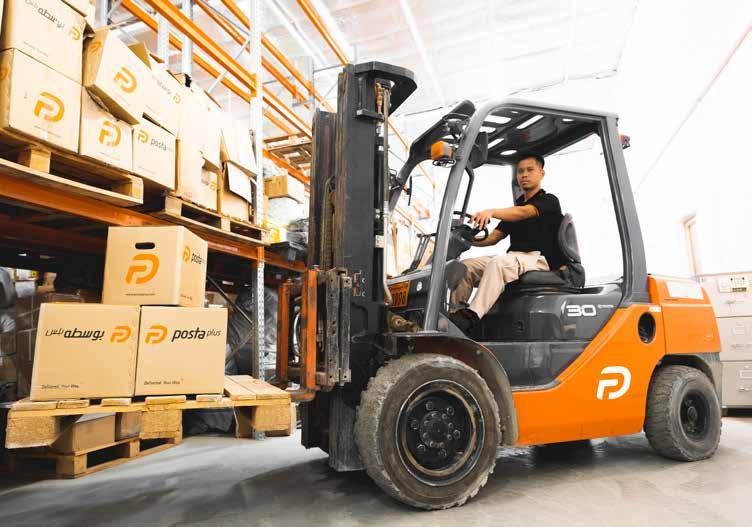

As many motorists across the Middle East consider taking to the roads, with national lockdowns being eased or set to be eased in the coming weeks, Continental is providing some important safety tips for motorists looking to ensure their car is in tip-top condition as it returns to action.
The guidance is shared in line with Continental’s Vision Zero strategy, a major road safety project that is targeting zero fatalities, zero injuries and zero accidents on the world’s roads. Using its vast experience in the field of automotive safety, the premium German tyre
and technology brand’s ‘Moving Forward’ campaign encourages car owners across the region to take the necessary steps needed for a safe and enjoyable return to the road, including:
Leaving a car unused for extended periods can lead to unexpected issues. For example, the tyres might develop flat spots because of the weight of the vehicle pressing down on them. It is important to keep the tyres properly inflated at all times, and to inspect them carefully
before heading back out on the road - visible issues such as bulges, cracks or blisters may be spotted, and require immediate attention.
In normal circumstances, tyre pressures should be checked regularly (every two-four weeks). Before returning to the roads, Continental recommends that drivers check the tyre pressure on their car. If pressures are too high or too low, this can cause a range of potentially dangerous issues, including overheating and loss of traction. Recommended


tyre pressures can normally be found on the driver’s door post.
While cars have been parked up, the batteries haven’t been activated and may lose their charge. Before hitting the roads, Continental recommends switching on the engine and moving the car around a little first. If you have trouble starting, you may need to replace the battery with a new one
With a lack of movement, brakes may be at risk of degradation. Upon starting the car, it should be moved around a little to check the brakes. If the brakes are squeaky, it’s time to change them. As always, if the car is likely to remain unused for a prolonged period of time it should nevertheless be moved regularly to ensure the brakes operate correctly.
One of the most important aspects of car care is maintaining the right fluid and lubricant levels. As a precautionary measure before driving, it’s important to check that the engine oil, transmission fluid, brake fluid and coolant are at the right level. A lack of movement can lead to certain components degrading, in turn causing spills and leaks. Ensuring levels are correct will help prevent potentially dangerous engine failure, brake failure or even transmission failure.
While stationary, dirt may build up around the windscreen wipers, potentially damaging them and reducing their effectiveness when used. It is a good idea to not only clean the wipers, but also the windscreen and paintwork to ensure the car remains in good condition for when it is used again.
As life gradually returns to normal, drivers should also give their spare tyre a check-up for any damage or air pressure loss. A spare tyre will always come in handy in the event of an emergency.
The Khalifa Industrial Zone Abu Dhabi (KIZAD), broke ground for a new dedicated Truck Plaza, comprising refuelling and rest facilities with the Industrial Zone.
The project was introduced to His Highness Sheikh Khalid bin Mohamed bin Zayed Al Nahyan, Member of the Executive Council, Chairman of Abu Dhabi Executive Office, and Chairman of the Executive Committee, during his recent visit to KIZAD to review the progress of developments at the Zone.
The ground breaking event took place in the presence of Ahmed Al Shamsi, Acting CEO of ADNOC Distribution, and Samir Chaturvedi, CEO of KIZAD.
The plaza, covering an area of more than 87,000 sq metres, roughly equal to 12 soccer fields, will cater to the needs of workers and visitors at KIZAD’s growing industrial zone. It will include a first-of-its-kind dedicated ADNOC Distribution service station for trucks, comprising two main canopies and six diesel bay canopies, and a community centre with 275 shaded truck, bus and car parking spaces. It will also house several retail outlets, including a convenience store, restaurants, a car care service, and a mosque.
The project is a significant step forward in providing truck drivers and workers within KIZAD with refuelling and rest facilities.
Abdullah Al Hameli, Acting Head of Industrial Zones Cluster, Abu Dhabi Ports, said: “KIZAD Truck Plaza is another important milestone in realising KIZAD’s vision to support all of its customers and the community across Abu Dhabi’s industrial and logistics

supply chain. We are confident that integrated facilities at the Truck Plaza will ultimately improve the quality of lives of the broader industrial zone community.
“Undertaking this new development and collaborating with ADNOC reflects our commitment towards enhancing KIZAD’s attractiveness for both local and global investors. Additionally, this is part of our journey to support the lives of our bourgeoning population of tenants, workers, and residents.”
Ahmed Al Shamsi, Acting CEO, ADNOC Distribution, said: “We are delighted to be part of this development and collaborate with KIZAD to create best-in-class infra-
structure and facilities that support this community. This dedicated service station will be an important milestone in our journey as we continue to drive the sustainable economic vision of the UAE and keep our essential customers moving.”
The truck plaza will include a restaurant for heavy duty vehicle drivers, a convenience store, four additional quick service restaurant outlets, as well as lube and vehicle washing services. The plaza will also include two utility buildings and has provision for a 1000 square metre mosque. Follow on enhancements to the truck plaza may include a dedicated overnight rest area for drivers and additional comfort facilities.
